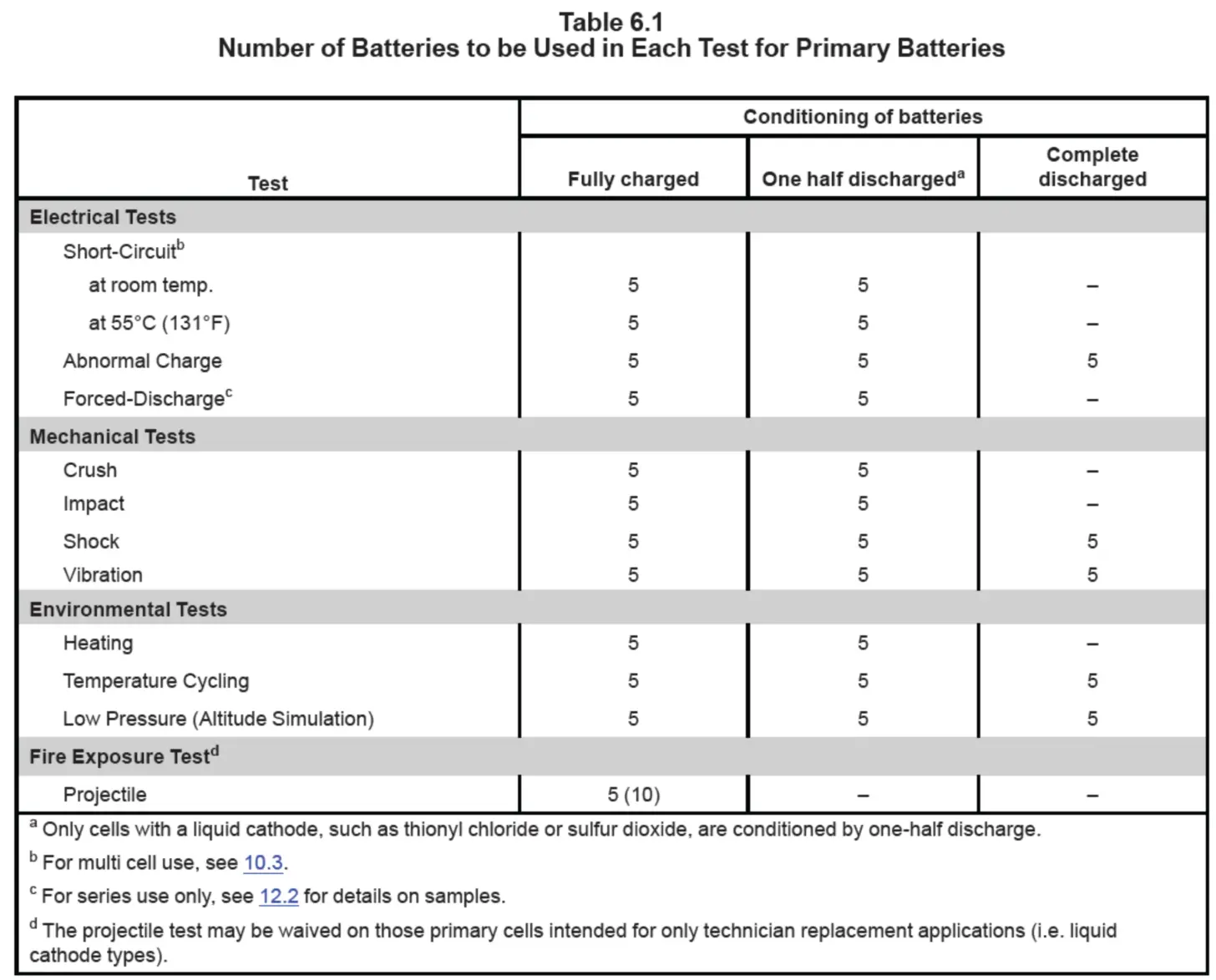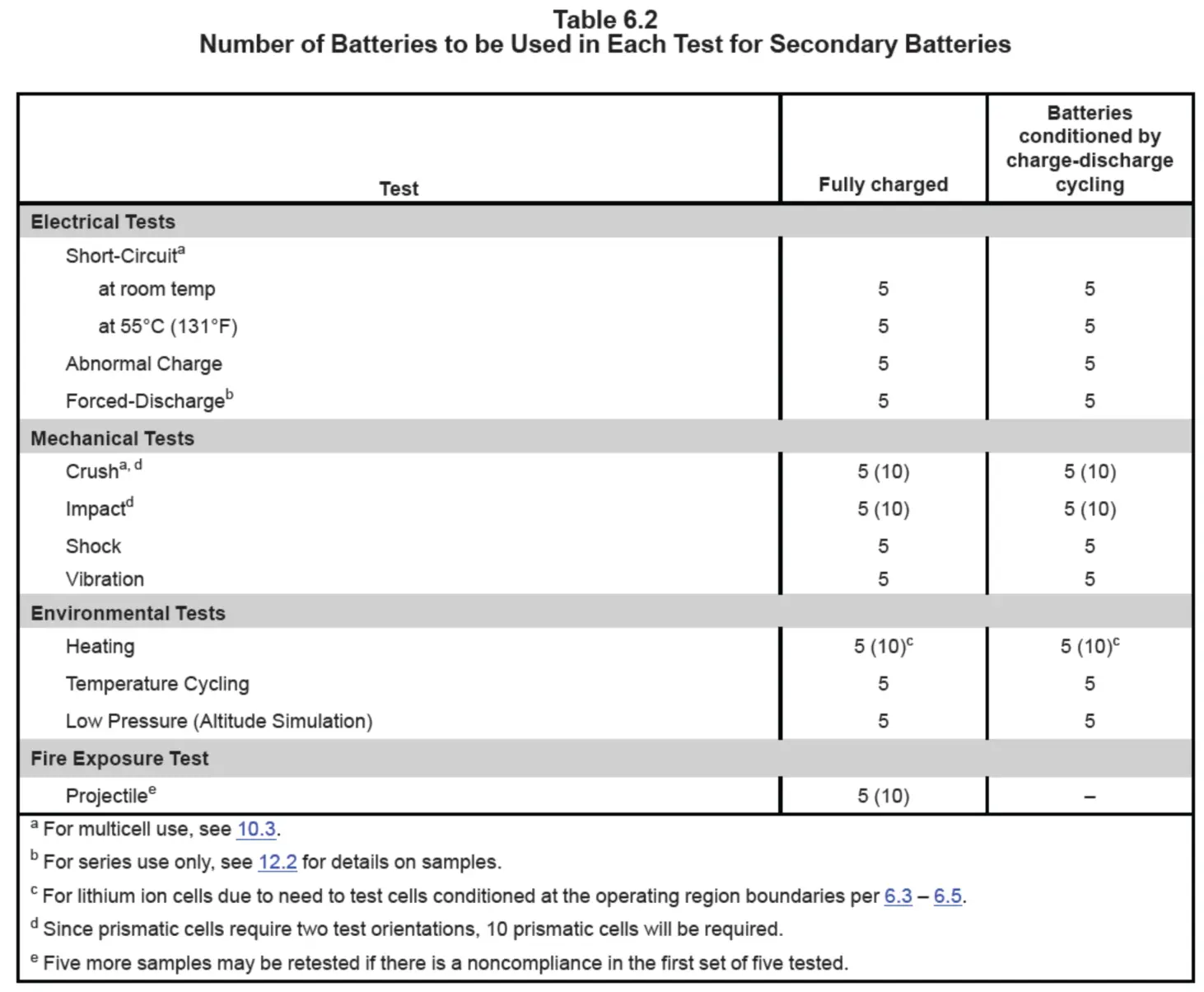
UL 1642 2020 ED.6 Standard for Lithium Cells
I. Introduction to UL certification
UL stands for Underwriters Laboratories Inc., a leading and authoritative private organization in the United States that specializes in safety testing and certification. UL is one of the largest independent safety science companies in the world, primarily engaged in safety certification and product compliance verification. Its ultimate goal is to contribute to market products with a high level of safety, thereby ensuring personal health and property safety.
Before entering the U.S. market, batteries often need to pass UL certification. Although UL certification is voluntary, products bearing the "UL" mark are typically cleaRED by U.S. Customs, while those without it are subject to complicated inspection procedures. Furthermore, in the event of a safety incident, the Consumer Product Safety Commission (CPSC) also uses UL standards as a basis for judgment. As a result, many retailers in the U.S. refuse to sell products without the UL mark to avoid potential complications. Since batteries are considered components of electrical products, they are subject to random certification when entering the U.S. market.
II. Test Items
The ul 1642 2020 Edition 6 standard is a safety standard specifically for lithium cells. It applies to both primary (non-rechargeable) and secondary (rechargeable) lithium cells. The main test items include:
1. Short Circuit Test
2. Abnormal Charging Test
3. Forced Discharge Test
4. Crush Test
5. Impact Test
6. Mechanical Shock Test
7. Vibration Test
8. Heating Test
9. Temperature Cycling Test
10. Low Pressure (Altitude Simulation) Test
11. Flame Test
III. Sample Requirements
Sample requirements differ for primary (non-rechargeable) and secondary (rechargeable) lithium cells.
1. Sample requirements for primary lithium cellsare specified in Table 6.1.
2. Sample requirements for secondary lithium cellsare specified in Table 6.2.


IV. Documentation Requirements
1. Application Form
2. Cell Specification Sheet (including dimensional drawings)
3. CDF – Critical Component List
4. ISO Certificate of the Cell Manufacturer
5. Label Artwork
Email:hello@jjrlab.com
Write your message here and send it to us
 How Do You Get a CE Mark
How Do You Get a CE Mark
 IEC 60529 IP Rating Ingress Protection Standard
IEC 60529 IP Rating Ingress Protection Standard
 IEC 60601-1 Medical Electrical Equipment Basic Saf
IEC 60601-1 Medical Electrical Equipment Basic Saf
 European Authorized Representative Medical Devices
European Authorized Representative Medical Devices
 EU Waste Electrical and Electronic Equipment Direc
EU Waste Electrical and Electronic Equipment Direc
 How to Get CE Approval
How to Get CE Approval
 Accelerated Ageing Test
Accelerated Ageing Test
 IP Ingress Protection Testing
IP Ingress Protection Testing
Leave us a message
24-hour online customer service at any time to respond, so that you worry!




